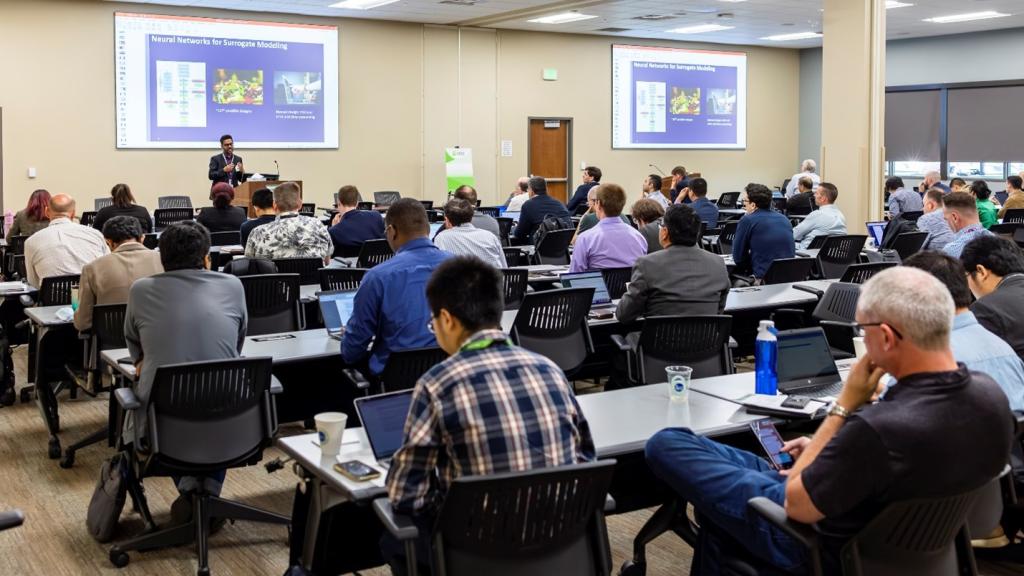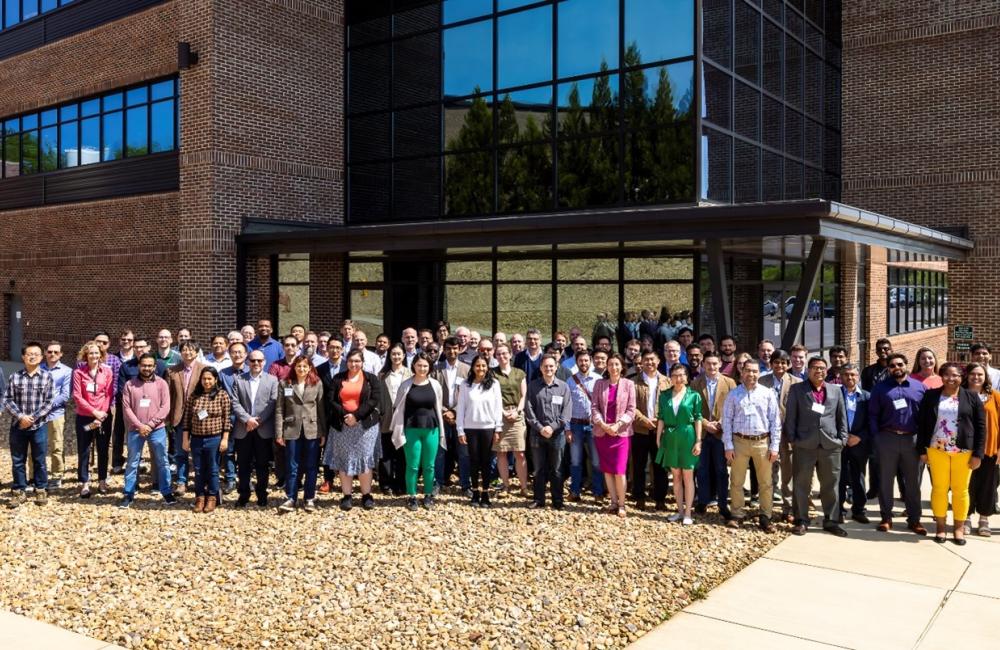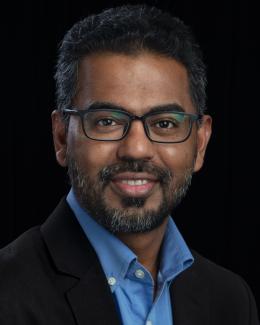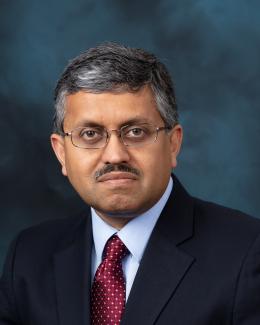AIRES 4 attendees hailing from seven national laboratories and from academia met to discuss robust engineering for digital twins. Credit: Pradeep Ramuhalli/ORNL, U.S. Dept. of Energy
The Department of Energy’s Oak Ridge National Laboratory hosted its fourth Artificial Intelligence for Robust Engineering and Science, or AIRES, workshop from April 18-20. Over 100 attendees from government, academia and industry convened to identify research challenges and investment areas, carving the future of the discipline.
AIRES 4 focused on assured digital twins, which are virtual models that accurately represent physical systems in real time. “Digital twins are emerging as a transformative paradigm for science and engineering applications across DOE,” said Prasanna Balaprakash, ORNL’s AI program director. During the past decade, these models garnered attention because of advances in computing alongside increasingly streamlined data collection methods and data-driven analysis.
“Currently, there’s a lot of activity on ensuring concurrency between a physical system and its digital twin,” said Pradeep Ramuhalli, leader of ORNL’s Modern Nuclear I&C group and co-chair of the event. “As this interest advances, people are looking to AI-based solutions to design and control these systems. AIRES 4 provided a forum to discuss the best practices for orchestrating these developments.”
The workshop featured three discussion tracks that covered the key facets relevant to engineering these digital twin technologies:
- Assured Digital Twins identified technical challenges associated with developing robust digital models, including topics such as scaling issues and uncertainty quantification.
- Digital Twin Model Development and Lifecycle Management addressed the ecosystem and methods needed to deploy practical digital twins.
- Sensors and Data Management considered aspects of data relevant to digital twin technology, from data validation to novel characterization of systems.
During the workshop, scientists shared their research and perspectives during technical talks, providing a glimpse of the current work in the field. Students and researchers also had the opportunity to shine during the event’s poster session. Additionally, breakout sessions bolstered user participation by generating discussions and encouraging collaboration.

AIRES 4 is the latest in a series of workshops that began in 2020. The inaugural event grew from a key research thrust for ORNL’s AI Initiative. AIRES 1 explored the landscape of AI for robust engineering, which refers to the process of designing, building and controlling systems to avoid or mitigate failures. Subsequent workshops have expanded on this foundation.
Involvement from other national laboratories and academia has expanded the reach of AIRES. “In the past few years, ORNL has invested in its AI Initiative,” Ramuhalli said. “Researchers supporting the AI Initiative collaborate with researchers and staff at the DOE Office of Science’s user facilities at ORNL, which provide the nation’s scientific community with access to large experimental equipment. Every one of these facilities engages in research relevant to the theme of this workshop.”
AIRES organizers anticipate that conversations at this year’s event could help inform advancements in AI for digital twin technologies, which will play an integral role in managing experimental research spaces. For instance, these technologies could improve the workflow and safety of large-scale systems that require constant regulation: they can determine potential causes of failure, allowing engineers to identify hazards before they damage physical systems.
“Developing the mathematical foundations and robust computing infrastructure for digital twins while ensuring safety, alignment, trustworthiness and energy efficiency will propel us towards accelerated scientific discovery,” Balaprakash said. “These foundations will optimize the performance of complex engineered systems, such as power grids and associated generation sources.”
UT-Battelle manages Oak Ridge National Laboratory for the Department of Energy’s Office of Science. The single largest supporter of basic research in the physical sciences in the United States, the Office of Science is working to address some of the most pressing challenges of our time. For more information, please visit https://energy.gov/science. – Reece Brown




